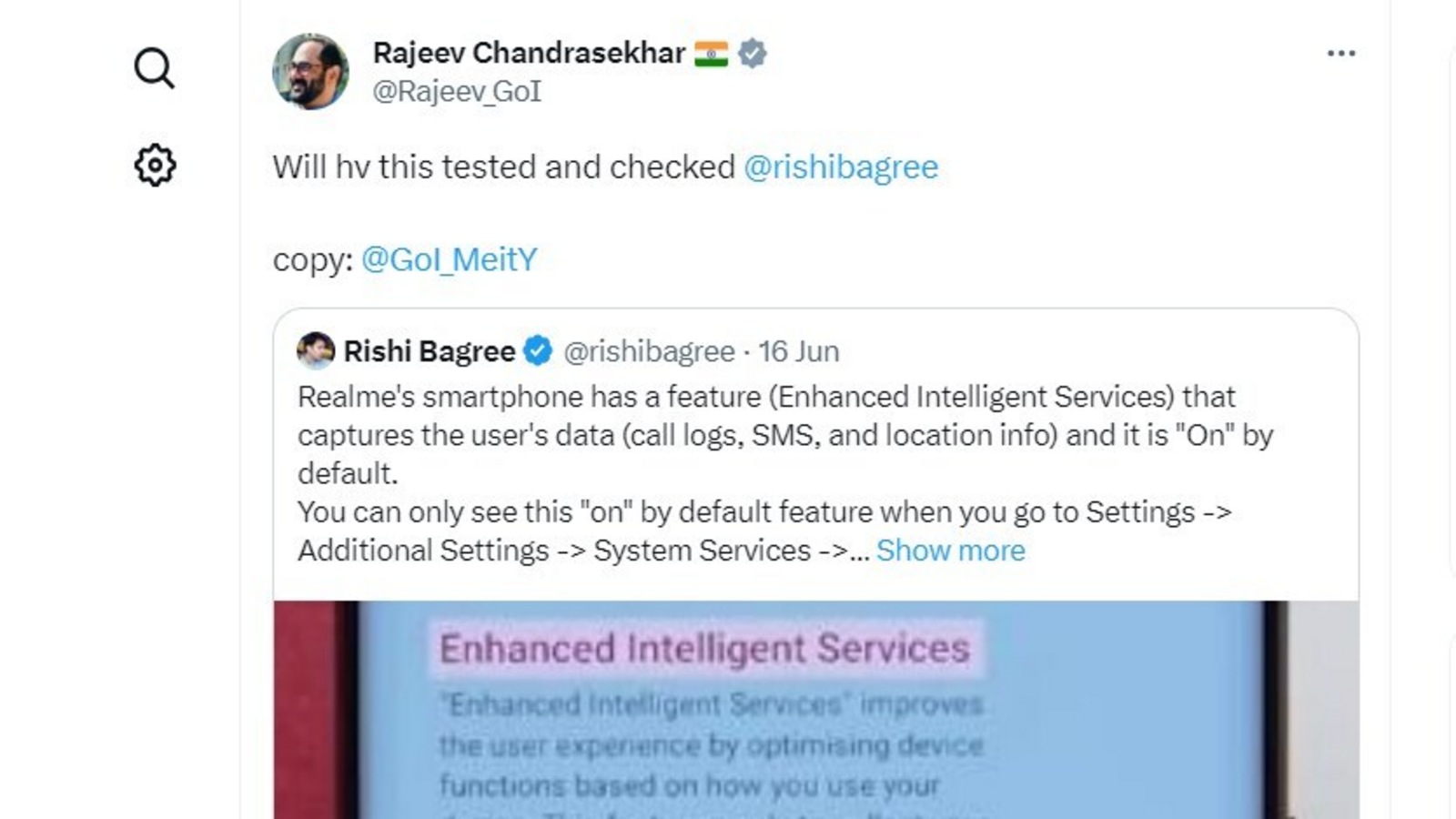In a tech scandal that has sent shockwaves across the industry, Chinese smartphone manufacturer Realme finds itself embroiled in a controversy surrounding the alleged unauthorized collection of data from Indian citizens. The accusations, which have garnered significant attention, raise serious concerns regarding user privacy and data protection in an increasingly connected world.
According to recent reports, Realme, known for its budget-friendly yet feature-rich smartphones, stands accused of surreptitiously gathering personal information from Indian smartphone users without their explicit consent. The data in question reportedly includes sensitive details such as contact lists, call logs, text messages, location information, and other personally identifiable information.
The allegations surfaced when a cybersecurity firm discovered suspicious data transmission patterns originating from Realme devices. Further investigations revealed that certain pre-installed applications on these devices were quietly accessing and transferring user data to servers located outside India, raising red flags about potential privacy breaches.
These allegations have ignited a fierce debate on the ethical practices of smartphone manufacturers and the importance of safeguarding user data. With smartphones serving as virtual extensions of our lives, storing an abundance of personal information, the protection of user data has become a paramount concern for individuals and regulatory bodies alike.
Realme, in response to the allegations, released a statement vehemently denying any wrongdoing. The company asserted that it strictly adheres to privacy regulations and guidelines set forth by the Indian government, emphasizing its commitment to protecting user data. Realme's statement also emphasized that any data transmission occurring on their devices is in line with standard smartphone functionality and aims to enhance user experience rather than compromise privacy.
Indian authorities, recognizing the gravity of the situation, have launched an investigation into the allegations against Realme. The outcome of this investigation will likely have significant implications for not only Realme but also other smartphone manufacturers operating within the country, as it could set a precedent for enforcing stringent data protection measures.
This controversy underscores the need for robust data protection laws and increased transparency in the smartphone industry. As smartphones continue to permeate every aspect of our lives, it is imperative that users have full control over their personal data and are fully aware of how it is being collected, stored, and utilized.
Moreover, this incident serves as a reminder for consumers to exercise caution when granting permissions to apps and conducting due diligence before trusting smartphone manufacturers with their sensitive information. Understanding the privacy policies, scrutinizing app permissions, and opting for devices from manufacturers with a proven track record of prioritizing user privacy can help mitigate risks associated with unauthorized data collection.
Ultimately, the Realme data collection allegations shed light on a larger conversation surrounding privacy rights in the digital age. As technology evolves, it is crucial for governments, regulatory bodies, and manufacturers to work collaboratively to establish comprehensive frameworks that protect user privacy while fostering innovation and convenience.
While the investigation into Realme's data collection practices unfolds, the controversy serves as a wakeup call for both consumers and the industry as a whole. It underscores the pressing need to address privacy concerns, implement stricter regulations, and foster a culture of accountability within the smartphone ecosystem. Only through concerted efforts can we ensure that our personal data remains secure and that the products we rely on align with our privacy expectations in this increasingly interconnected world.



0 Comments